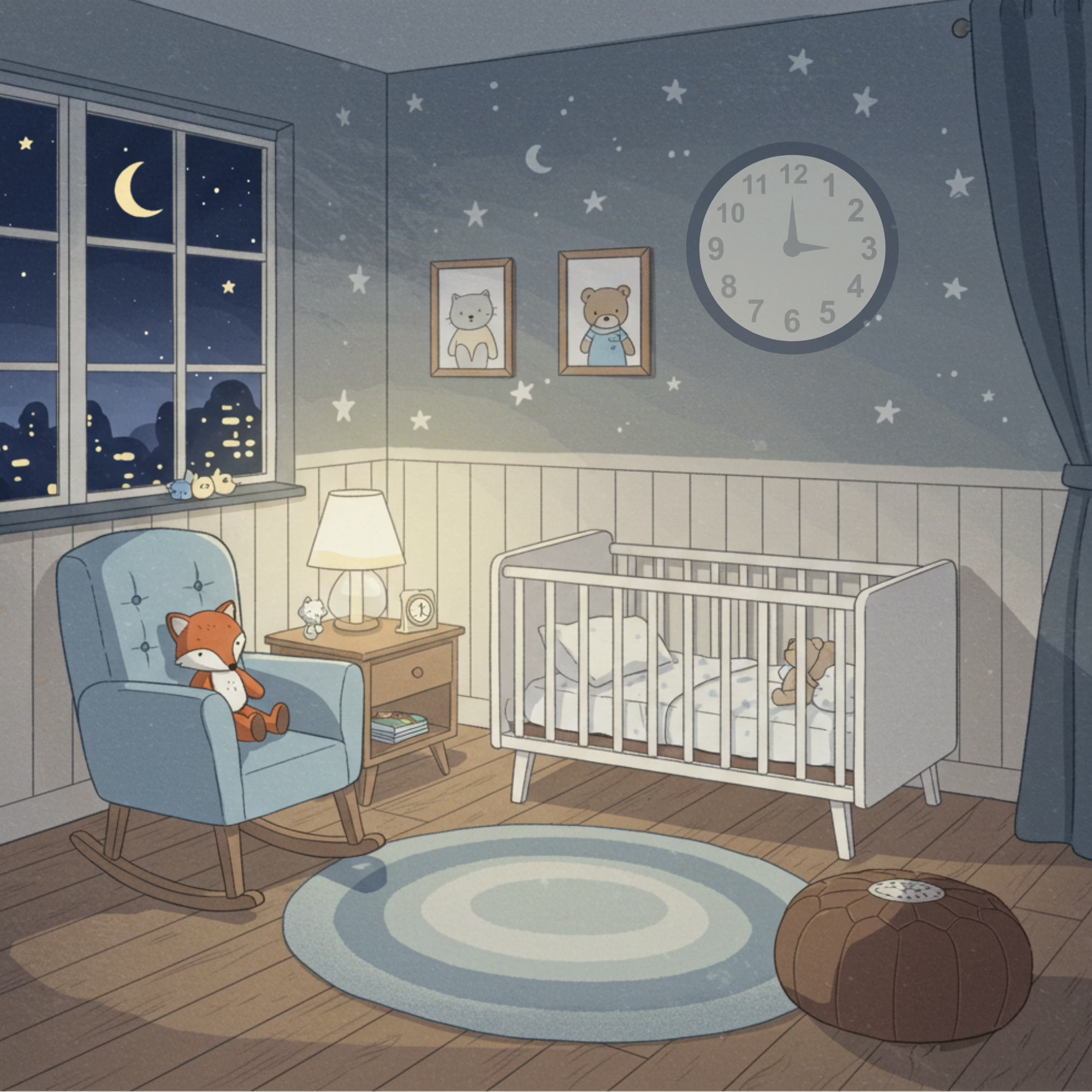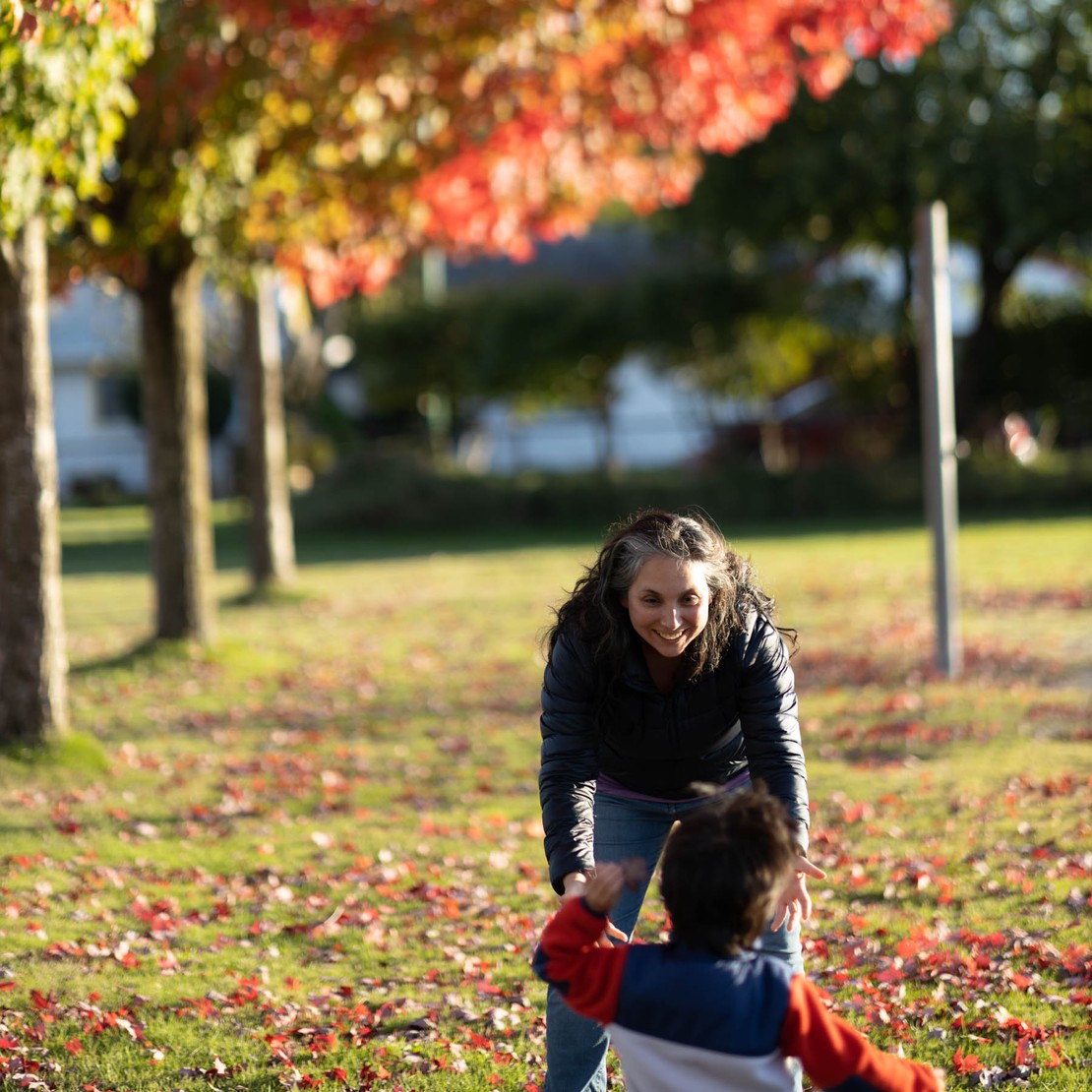The Truth About Baby Sleep: Why Learning to Sleep is Like Learning to Walk
Table Of Contents
Let’s Talk About Baby Sleep (And Why It’s Probably Stressing You Out)
Okay parents, let’s have an honest conversation about baby sleep. And I mean REALLY honest - the kind where we admit that sometimes we’re lying awake at 3 AM wondering if we’re somehow ruining our kids forever by trying to help them sleep by themselfs. (Spoiler alert: we’re not!)
Info
Here’s the thing about sleep that nobody tells you: adults have had YEARS of practice falling asleep. Your baby? They’re total sleep newbies. It’s like expecting them to run before they can crawl!
The Sleep Cycle Secret Nobody Tells You
Let me blow your mind for a second: we ALL wake up multiple times during the night. Yep, you too! We cycle through different sleep stages about 4-6 times each night, with each cycle lasting around 90 minutes. The difference? We’ve learned to roll over and go right back to sleep without even remembering it.
But babies? Their sleep cycles are different:
- Newborns start with cycles around 50 minutes
- They begin in REM sleep (unlike us!)
- They haven’t learned the whole “roll over and go back to sleep” thing yet
Why We Can’t Actually “Help” Babies Sleep
takes deep breath
This is where it gets tricky. When we rush in to help every time our baby stirs, we might actually be preventing them from learning an essential skill. Think about it like this:
Imagine if every time your baby tried to stand up, you immediately picked them up and carried them where they wanted to go. Would they ever learn to walk? 🤔
“But Won’t They Get Stressed?” (The Cortisol Question)
Let’s talk about stress, baby! (Sorry, couldn’t resist.) There’s been a lot of scary talk about stress and cortisol levels during sleep training. But here’s the fascinating part: research shows that the cumulative stress of multiple night wakings over months or years is SIGNIFICANTLY HIGHER than the temporary stress caused by sleep training. Think about it this way: what would you prefer - a few nights of adjustment or YEARS of constant waking? And we’re not just talking about baby stress here, but parental burnout too. The reality is that when the whole family sleeps better, the whole family lives better! Babies who develop good sleep habits early tend to be happier, more alert, and show better development. And parents… well, rested parents are simply better parents (because they’re not walking around like zombies all day!). But here’s what the research actually shows about types of stress:
- Positive stress: Brief, mild stress with a supportive adult present (like getting a vaccine)
- Tolerable stress: Stronger but temporary stress (like starting daycare)
- Toxic stress: Prolonged stress without support (like neglect)
Learning to sleep independently, with loving support, falls into that first category - positive stress that actually helps development!
The Real Deal About Sleep Learning
Here’s what nobody tells you in those 3 AM Google sessions:
- Sleep is a learned skill
- Learning involves some frustration
- Your presence and support matter
Tip
Remember: You’re not teaching your baby TO sleep - you’re creating an environment where they can learn HOW to sleep.
So What Can We Actually Do?
- Respect the cycle: Work with your baby’s natural sleep rhythms
- Create routine: Babies love predictability
- Support learning: Be present without doing all the work
- Stay consistent: Choose an approach that fits your family and stick with it
- Be patient: Remember, they’re learning a new skill!
The Bottom Line
Learning to sleep is a journey, not a destination. Some nights will be better than others, and that’s okay! Your baby isn’t broken, and you’re not doing anything wrong. You’re both learning together.
Warning
If you’re struggling with sleep, remember: this phase won’t last forever. (Though I totally get that it feels like it will at 3 AM!)
A Final Thought
The next time you’re up at night wondering if you’re doing this whole sleep thing right, remember: every parent before you has wondered the same thing. And somehow, we all eventually learn to sleep.
You’ve got this, tired parent. You’ve got this.
Want more sleep tips? Let me know in the comments! And remember, my firsthand experience with this comes from both being a parent AND being someone who once couldn’t sleep through the night herself. (Yes, I was THAT kid. Sorry, Mom!)
References
-
de Weerth, C., Zijl, R.H., & Buitelaar, J.K. Development of cortisol circadian rhythm in infancy. Early Hum Dev. 2003.
-
Middlemiss, W., Granger, D.A., Goldberg, W.A., & Nathans, L. Asynchrony of mother-infant hypothalamic-pituitary-adrenal axis activity following extinction of infant crying responses induced during the transition to sleep. Early Hum Dev. 2012.
-
Patel, A.K., Reddy, V., Shumway, K.R., & Araujo, J.F. Physiology, Sleep Stages. StatPearls Publishing. 2024.
-
American Academy of Pediatrics. The Lifelong Effects of Early Childhood Adversity and Toxic Stress. Pediatrics. 2012.
-
Gunnar, M.R., & Donzella, B. Social regulation of the cortisol levels in early human development. Psychoneuroendocrinology. 2002.

